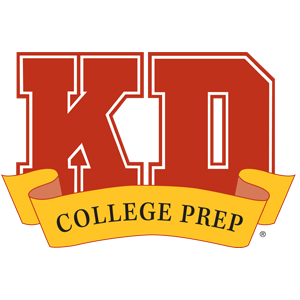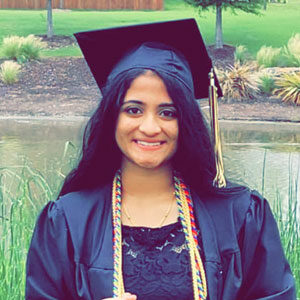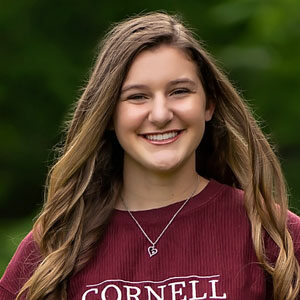Over the last few years, we’ve seen the college admissions landscape change and become increasingly competitive at the nation’s top colleges. After working with hundreds of students and consulting with other admissions professionals, these are our top five college application tips for 2023-2024. I’ll explain why these are the mistakes students are making—and how you can avoid duplicating them.
1. Students underestimated the academic standards of top colleges.
You’re going to be mad at me, but I believe in honesty as the foundation of our relationship.
You often hear colleges encourage all students to apply because the college practices “holistic review.” Holistic review is a buzzword that means the college considers numerical factors like grades, test scores, and class rank, along with extracurricular activities, recommendations, and other factors, including the student’s background.
The college forgets to mention that an increase in applications means a lower acceptance rate, which can help a college’s ranking. It also means that more people pay $50-100 to apply if they don’t qualify for a fee waiver.
Holistic review does not mean that unqualified students get into top colleges. Let’s ignore test scores and focus on high school performance. According to Harvard’s Common Data Set for 2019-2020, 70.55% of the freshman class had a high school GPA of 4.0 using a 4.0 scale. 22.26% had a GPA between 3.75-3.99, meaning 92.81% of Harvard’s entering freshman class had a GPA above 3.75. Only 2.25% had a high school GPA below 3.5. For the same year, 95.4% of Stanford’s freshmen had a high school GPA of 4.0.
The same standards hold at public flagship colleges like the University of Texas at Austin. For 2019-2020, just over 78% of its freshman reported a class rank. 96.2% of these freshmen were in the top quarter of their high school class.
What does this mean (other than you putting my face on a dartboard)? You have to be realistic when creating your college list.
How to Avoid the Mistake:
Look at the admissions statistics for your target colleges. It sounds harsh, but don’t expect to get into an Ivy League college if you have a 2.9 GPA and are in the bottom half of your high school class. Yes, even for your high school, which is very competitive.
Can you still apply to that dream school? Of course, but also look past names and rankings and find colleges that will be right for you. Reach out to your high school counselor or a private college counselor to discover the hundreds of colleges where you’ll be happiest and do your best work.
2. Students used COVID-19 as an excuse.
To be clear, I am not talking about students who experienced medical, family, financial, and other serious issues due to the pandemic. All students went through an incredibly difficult academic situation that we will struggle for years to understand and overcome. The pandemic also took an unbelievable toll on students’ mental health. All of these effects are important and deserve to be considered by colleges.
We all needed time to play video games, binge-watch Netflix, and scroll through videos on TikTok, but we could have done other things too. Virtual or in-person volunteering, focusing on an academic pursuit, or learning a new skill were options. Some people balanced quarantine laziness with productivity, and some of us didn’t. And that’s really ok, as long as you don’t claim that you didn’t have a choice.
We can’t blame COVID-19 for everything—many things, yes—but not everything. At some point, we have to take responsibility for what we did and didn’t do. Our choices were about happiness and survival, but not taking the time to organize my house or take up a new hobby can’t be blamed on COVID-19. I was watching Bridgerton.
How to Avoid the Mistake:
Move that school club to an online platform. Volunteer. Do your best in your classes, even if it means spending more time studying. Reconnect with family and friends. Take care of those who are still suffering. And when it’s safe to do so, reenter the world. It missed us all.
3. Students thought colleges would care about their essays.
Like Steve Peifer (my mentor, CNN Hero, and renowned college counselor) says, “You have to make them care.” College admissions officers don’t wake up and think, “I can’t wait to read 200 essays today about ACL injuries.” Pro tip: don’t write about your ACL injury.
Readers want you to sweep them into your fascinating story, quirky anecdote, or expressive prose. They want to read your essay because it’s interesting, not because it’s required. Ask yourself this – Do you want to read your essay? If not, don’t subject a college admissions officer to it.
How to Avoid the Mistake:
Find a story only you can tell. Ask yourself what would make a college admissions officer care about your topic. These essays don’t happen overnight, especially on deadline day. It takes time to brainstorm, write, revise, rinse, and repeat. Make your essay something even you would read.
If you’re not sure where to start, our college counselors are here to help! We offer college essay assistance and editing services to help you write compelling essays.
4. Students underestimated the amount of time it takes to complete applications.
There are many steps involved in the application process, from writing supplemental essays, requesting recommendation letters, sending transcripts and test scores, and even filling out forms. If you’re applying to ten colleges and each college has just two supplemental essays, that’s twenty essays you need to write. More students than ever waited until the last minute to submit applications, forgetting that teachers and high school counselors were on winter break. If you needed a recommendation or transcript for colleges with January 1 deadlines, you might have been out of luck.
How to Avoid the Mistake:
Submit all of your applications by October 15th at the latest. To accomplish this, you need to decide on your college list by July 1. Request transcripts, recommendation letters, and test scores well in advance of deadlines. Allow enough time to write great essays. You’ll have a happier senior year and a more successful application process.
5. Students let college decisions determine their self worth.
This mistake is as old as time but was magnified in the COVID-19 era. In this time of uncertainty, rejection felt even more personal, and students were isolated from counselors, friends, and family members who usually provide support and a new perspective. Colleges don’t reject students because they aren’t smart, capable, and kind; they reject students because they don’t have enough room for all of the smart, capable, and kind students who apply. It’s not a personal judgment about a student.
How to Avoid the Mistake:
Apply to a range of colleges that you would love to attend. No matter what happens, know that the college’s decision usually isn’t about you. It’s about the college’s priorities, space, and other factors. Reframe a rejection by looking at the colleges that accepted you and finding opportunities to reach your goals. College is what you make of it, so celebrate your success and get ready for the most exciting time of your life.
Need more specific college admissions advice from someone who knows the process?
KD College Prep offers a variety of college counseling programs to help support you through the entire process. Whether you need help selecting high school courses, building your college list, or editing your essay, our experienced college counselors will guide you through every step in creating your best possible college application. Contact us to schedule your free consultation.














































